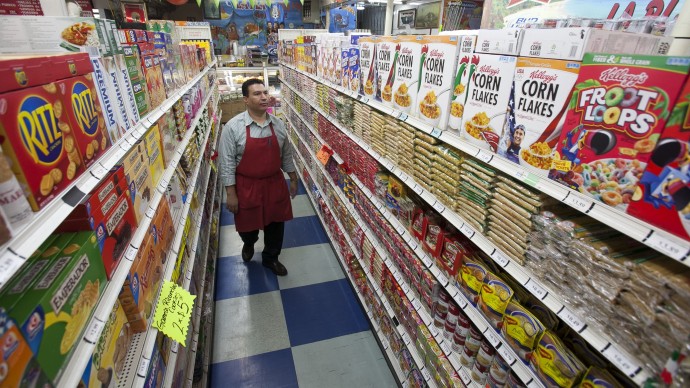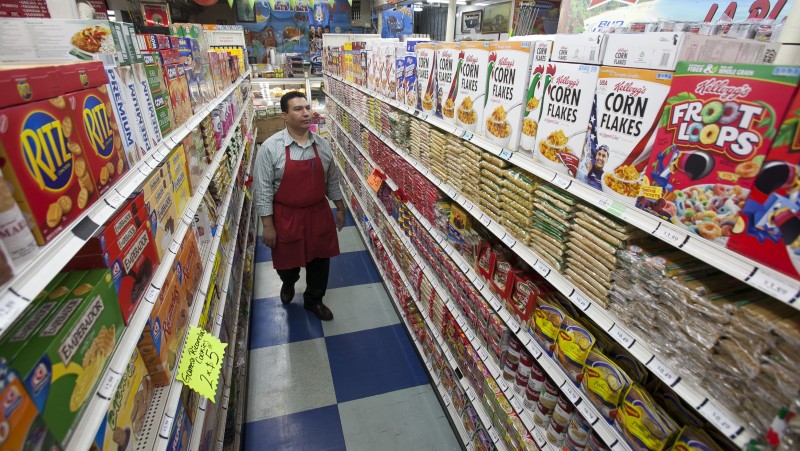
The United States’ first-ever legislation requiring the labeling of genetically modified organisms was recently passed by state lawmakers, but before the labels hit store shelves, a few other states need to follow suit.
Earlier this month, Connecticut became the first state in the U.S. to pass legislation that required food manufacturers to label items that contained GMOs. Though the historic legislation was supported by politicians on both sides of the political spectrum, it won’t take effect until at least four other states, including one that borders Connecticut, pass similar GMO-labeling legislation.
Then, on Friday, Maine became the second state to pass a GMO-labeling law. Like Connecticut’s version, Maine’s new law won’t go into effect unless surrounding states follow their lead.
This means New York, Massachusetts or Rhode Island, along with other states, must also pass GMO-labeling legislation. In total, there needs to be about 20 million residents affected for Maine and Connecticut to enact the law, according to Mother Jones.
According to Paul Towers, media and organizing director for the Pesticide Action Network, Maine and Connecticut lawmakers designed their laws in this way because they wanted to protect businesses in their states “from being put at a competitive disadvantage.”
Tara Cook-Littman, head of the GMO Free CT group that advocated labeling GMO products, told Mother Jones that the group initially fought the inclusion of the four-state clause but ultimately decided it may do more good than harm.
“We’re hoping that the clause will end up being a catalyst to encourage other states to join us,” she said.
California dreaming
California tried to pass similar legislation in November, but big agriculture businesses such as Monsanto, BASF, Bayer, Dow, DuPont and Syngenta — the “Big Six” companies that control the world’s seed, pesticide and biotechnology industry — spent around $46 million persuading voters that labeling genetically engineered products was not necessary.
Cathleen Enright, the executive vice president of the food and agriculture section for the Council of Biotechnology Information, which made contributions to opponents of California’s Proposition 37, said that laws like the one that passed in Connecticut are “misleading” and will “lead to increased consumer confusion.”
“[Mandatory labeling] suggests there is a difference in safety or nutrition between biotech food and organic food, when there is none,” she said.
Though California’s Proposition 37 did not require other states to pass legislation before it was enacted, California has such a large population that many companies would have likely begun labeling products for all states.
“I think Prop. 37 in California was a wake up call and industry is recognizing that,” Towers said. “As more and more states work to pass these laws that would require labeling of GE foods, industry will continue to focus its pressure in Washington D.C. because it has greater access there than it does in each of these state legislatures.
“Efforts will ultimately prevail in states across the country,” Towers said. “It’s just a matter of time.”
Twenty-six states currently are considering legislation that would either require labeling of GMO products or ban them outright.
One of the states where the pending legislation will be closely watched is Washington, since the state is a major producer of two items that are affected by genetic engineering: salmon and apples.
U.S. lags Europe, public opinion
While GMO products must be appropriately labeled throughout the European Union, Japan, Australia, Brazil, Russia and China, the U.S. has never required such labeling — even though 90 percent of Americans believe genetically modified foods should be labeled as such.
On its website, the Center for Food Safety says that the Food and Drug Administration decided about 20 years ago that GMOs did not need to be labeled because they “were not ‘materially’ different from other foods.” Material changes were considered things that could be detected by one of the five senses.
Since GMOs generally can’t be detected by taste or smell, the FDA has not only allowed their continued usage, but has allowed companies such as Monsanto to continue using them without informing consumers.
According to the Center for Food Safety, some scientists working for the FDA have reported that GMO foods could pose serious health risks, but the FDA “almost entirely” relies on data given to them by agricultural companies when deciding whether or not a product is safe.


